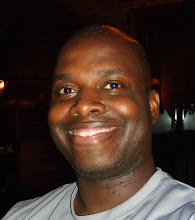A college student, enrolled in a Calculus course, worked to complete a take-home examination. Upon handing out the exam, the instructor for the course specifically reminded the students that the examinations should be independent work. Our college student heard this as, “Don’t cheat.”
The student was playing computer games in a friend’s dorm room the next day. Six other students from the class were sitting around and talking about the take-home exam as one student worked on his exam. They asked questions about his technique, formulas, and logic. Periodically, one student or another, would leave the dorm room for minutes, and return to the conversation. Our student thought nothing of it at the time and continued to play.
Graded examinations were distributed a week after the examination was due. Our student received a 70/100. The six other students’ scores were all above 80 with no two scores the same. Our student realized that those students had an advantage. You need to understand that the advantage the other students possessed was not cheating, it was collaboration.
Consider your perceptions. First, an opportunity to perform is greater than an opportunity to cheat or not cheat. An opportunity to perform is an opportunity for learning. Regardless of the reward, how best can you learn the lessons of this current opportunity? What resources do you have at your disposal? Will your use of those resources violate relationship? What the six students did was study together. They learned from each other. They created community. They, then, dispersed to complete their exams with that collective knowledge. Our student, just as you seem to, worked on his examination alone. Alone.
Second, ask yourself whether our student learned anything of value. Of course, 70 is a lower score than 80. But, those scores only apply to the course. If you can move beyond the material, the temporal, the right-now, and the external, you will win. If you can define success for yourself in the context of community, you will succeed. If you can value the movement, celebrate the small successes, and collaborate, you will change your world. Our student learned what you must learn. Morality is worthless if it does not promote sustainable relationship and the identification of collective activities.
The student was playing computer games in a friend’s dorm room the next day. Six other students from the class were sitting around and talking about the take-home exam as one student worked on his exam. They asked questions about his technique, formulas, and logic. Periodically, one student or another, would leave the dorm room for minutes, and return to the conversation. Our student thought nothing of it at the time and continued to play.
Graded examinations were distributed a week after the examination was due. Our student received a 70/100. The six other students’ scores were all above 80 with no two scores the same. Our student realized that those students had an advantage. You need to understand that the advantage the other students possessed was not cheating, it was collaboration.
Consider your perceptions. First, an opportunity to perform is greater than an opportunity to cheat or not cheat. An opportunity to perform is an opportunity for learning. Regardless of the reward, how best can you learn the lessons of this current opportunity? What resources do you have at your disposal? Will your use of those resources violate relationship? What the six students did was study together. They learned from each other. They created community. They, then, dispersed to complete their exams with that collective knowledge. Our student, just as you seem to, worked on his examination alone. Alone.
Second, ask yourself whether our student learned anything of value. Of course, 70 is a lower score than 80. But, those scores only apply to the course. If you can move beyond the material, the temporal, the right-now, and the external, you will win. If you can define success for yourself in the context of community, you will succeed. If you can value the movement, celebrate the small successes, and collaborate, you will change your world. Our student learned what you must learn. Morality is worthless if it does not promote sustainable relationship and the identification of collective activities.

